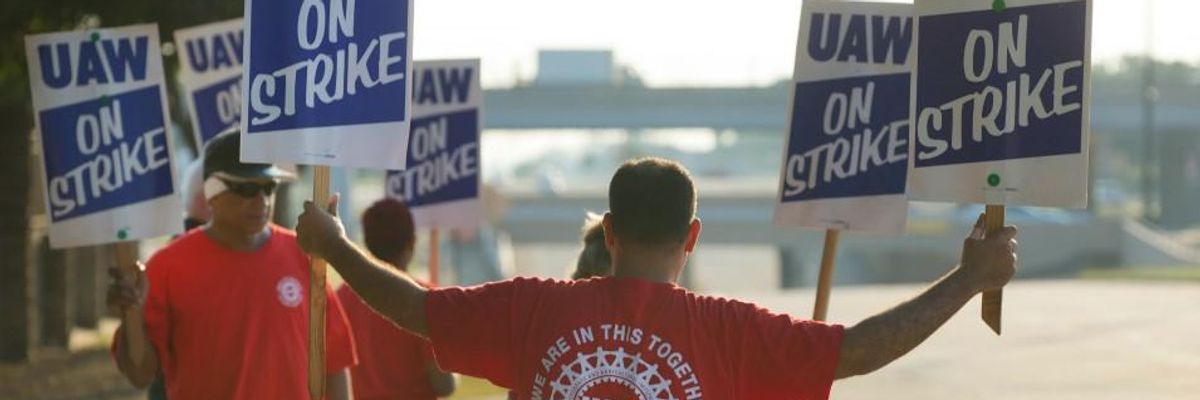Twenty years after turtles and teamsters teamed up to battle the WTO in Seattle, labor strikes and climate strikes are coinciding everywhere but in the media, and that's dangerous. If history is any guide, any minute now, some two-bit pundit or shameless president will pit workers against environmentalists so as to distract us from the real problem: the rich and the greedy and a value system that only cares about profits.
Last Friday, as four million young people marched in the world's capitals for action on climate, countless more were on the picket line supporting autoworkers who are out on strike. Both sets of strikers have guts and smarts and a righteous sense of urgency, but the latter had a fraction of the coverage, so let's be clear: they're all on the same side - the side of a future that we can actually inhabit.
Almost fifty thousand workers went on strike at General Motors Sept 16th after management and UAW negotiators failed to agree on a new contract. GM has bounced back from recession thanks to a taxpayer bailout, government tax breaks and contracts and a brutal restructuring of the workforce. Now, even though the company has made $35 billion in the last few years, they want concessions and yet more plant closures and layoffs.
This strike, the union's first in more than a decade, is about a contract - wages and healthcare and the exploitation of temps - but it's also about communities. When wages are driven into the floor, and the tax base shrivels or factories close, everything from the local school to the local fire department and the public water system takes a hit. The health and wealth of the place and its people are sucked out to make far-off CEOs and shareholders rich.
Working people all across this divided nation have seen it. And that's what's drawing them to round-the-clock picket lines in places like Flint and Detroit and Toledo and Buffalo and Canton, as well as Wentzville, Missouri, Bowling Green, Kentucky and Arlington Texas. Sure, there could be ways, and there are proposals, to transfer those closed plants to green production - light rail, electric batteries, buses, you name it. My personal favorite would transfer the plants to worker ownership. But the big point is, those places are dear to their residents, even if they're of no consequence to big money's media.
Know a union worker, or better yet, be one, and you've seen the toddlers on the line and the kids carrying signs - the same sort of signs, with the same sort of message you'll see all Climate Week. We want a future, a future we can live in, in a society that values people and planet, now and coming up. Call it climate protection or community protection; it's the same struggle, the same fight. And don't let anyone tell you different.




